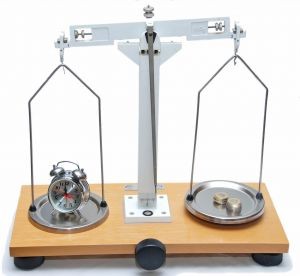 Juggling the demands of a career and a personal life often seems impossible. As business leaders, there are many times we stay late, get to the office early to try and get ahead, or work on weekends. You may even feel guilty if you don’t work 24/7.
Juggling the demands of a career and a personal life often seems impossible. As business leaders, there are many times we stay late, get to the office early to try and get ahead, or work on weekends. You may even feel guilty if you don’t work 24/7.
In this Entrepreneur article, contributor Victor Cheng asked a great question. “Short of simply working fewer hours and running the risk of tanking your business, how do entrepreneurs achieve a better work-life balance while increasing their bottom-line?”
His answer: Focus.
He refers to the late Steve Jobs, who said focus isn’t deciding what to do, it’s deciding what not to do.
But people tend to have a hard time narrowing their focus. “That's because it's often unclear how to focus at a practical level,” Cheng says.
He shares some steps to help you focus on what is most critical in your business, so you earn more but work less.
Tips to Achieve a Better Work-Life Balance
Monetize Your To-Do List
Look at everything on your list and determine what the financial value is of each task. Then, write the dollar amount next to the items. For example, if you need to finish a new business proposal and the contract is worth $200,000 then write “Finish Proposal ($200,000).”
Sort in Descending Order
Once you have monetized all of your tasks, sort them with the highest dollar amount at the top and the lowest at the bottom.
Work through Your List
Cheng suggests you spend four days a week on the top 50 percent of your list. Work on the number one item on the list until it is finished completely, then move on to the next. “If you find that you can't finish this item until someone else does something first, move on to the next item on your list,” says Cheng.
He also suggests spending one day a week on the bottom 50 percent. “By forcing yourself to work on the less important (but seemingly urgent) tasks only one day a week, you won't be able to complete them all,” he says. You might see some tasks on your list for weeks, and that’s alright. “It’s a deliberate byproduct of this approach,” he adds.
Reevaluate Your List Weekly
Are any of the tasks obsolete? If so, remove them. This is tough for some people, but if they stay on your list week after week, you’ll realize they aren’t as important as you thought. “The key to focus is to ignore trivial tasks while doubling the time spent on the things that make a big difference,” says Cheng.
Overworking yourself can, and will, start to take its toll. It’s important to focus on getting the most important things done first, but it’s only possible once we remove the clutter and distraction. If you are having a hard time deciding what to do, take Jobs’ advice: Decide what doesn’t need to be done.
What practical suggestions do you have for finding a better balance between work and the rest of your life?
